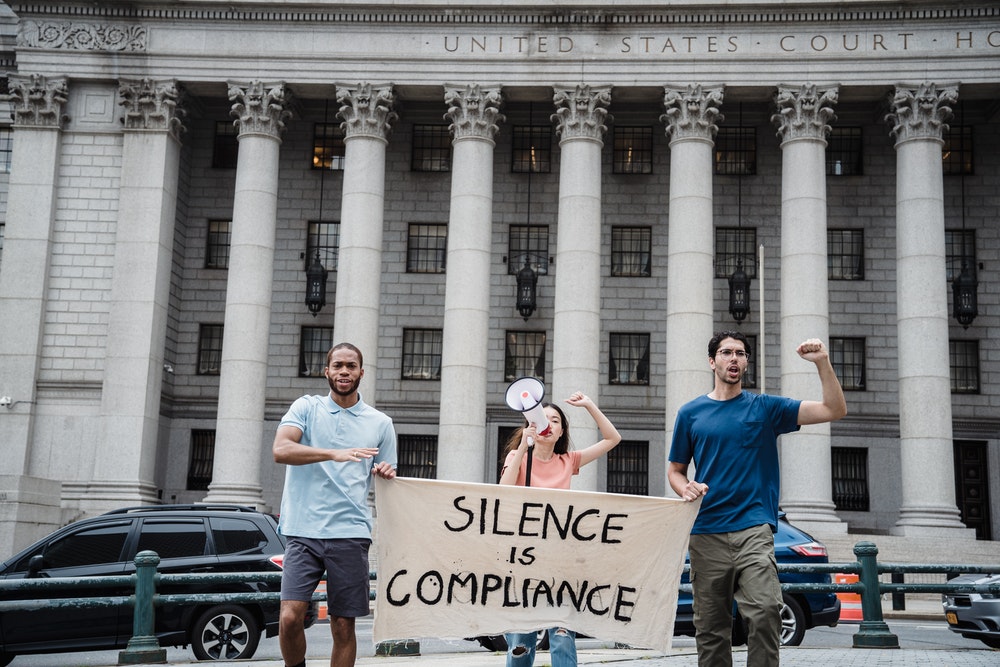Consider how you might feel if you were in the same room as an Antifa activist who had shot dead two people during a violent riot. Important context aside, just knowing that this radical activist had killed two people with a weapon in the street would likely be enough to make you, at the very least, feel a little uncomfortable.
For some who have experienced the wrath of Antifa’s hate campaigns, that feeling may extend to genuine terror.
Like it or not, that’s exactly the kind of terror felt by many who are—for whatever reason—shocked that Kyle Rittenhouse was acquitted of all charges against him. Putting aside for a moment the fact that Rittenhouse defended himself from three violent extremists in Kenosha last year, the fact that this young man has been routinely smeared by the mainstream press and even the Joe Biden presidential campaign as a racist murderer is precisely the reason why half of the United States is up in arms at his acquittal.
If you ever find yourself perplexed at just how dedicated people are to peddling lies about Rittenhouse, calling for him to be executed or locked up for good, and for the pure hatred directed towards the judge in this case for not allowing the two deceased attackers to be labelled “victims,” consider the possibility that this faux outrage is actually genuine.
There are unquestionably insincere narcissists and political activists who use this tragedy to boost their personal brands or advance their preferred narratives. That would include divisive propagandist Keith Olbermann, who mocked Rittenhouse’s PTSD-induced crying fit during his testimony in court. It would also include MSNBC news anchor Joy Reid, who claimed Rittenhouse’s rightful acquittal traces back to the era of “slave catchers.”
But not everybody is Keith Olbermann or Joy Reid, and not everybody has a brand to maintain or an agenda to push.
Some people are followers. Some people aren’t politically engaged every moment of the day, and in order to go about their lives as normal people they will often rely on the commentary and analysis of those whom they consider trustworthy. In Olbermann, Reid and others, liberal Democrats and progressives have a voice willing to bring them the news along with a pre-packaged opinion that they may simply adopt as their own.
Olbermann is admittedly an extreme example, but others may have entrusted 2020 presidential candidate Biden to provide an opinion on the Rittenhouse case. Those same people may not have even considered the possibility that his September 2020 campaign advertisement calling Rittenhouse a “white supremacist” was wrong.
Beyond the accusation that Rittenhouse gunned down three innocent people for absolutely no reason, there is no evidence to suggest that Rittenhouse is a white supremacist. The current president of the United States, however, said otherwise—and apparently that’s enough for some people.
Much of the commentary about Rittenhouse online is noticeably unhinged. The frantic, desperate and dumbfounded progressive foot soldiers couldn’t make their terror any clearer than they already have. They are panicked and scared of the prospect of this young man being free, believing that shooting people willy-nilly in the street is now legal because they have been fed so many lies by people they trust. And they believe it.
Reid, Biden and others wouldn’t be where they are if people didn’t believe them—and because people believe them, we must take the anguish and fear surrounding the Rittenhouse case seriously.
That doesn’t mean bending to the radicals who perpetuate lies about this case. Nor does it mean forgiving violent protests and riots. But it does mean having some compassion for those who have been fooled.
Violent, revolutionary movements are inspired by lies, misdirection and false hope—but for those movements to succeed, the foot soldiers must either be convinced what they are doing is right or be scared enough to go along with it anyway. It’s how the Nazis controlled Germany, it’s how the Bolsheviks took control of Russia following the October Revolution and we’re seeing the same dynamics unfold right before our eyes now.
The dynamics of the Rittenhouse case are much the same as the George Floyd case and other instances of Black criminals being killed or arrested by police officers. Many Black Americans entrust so-called civil rights activists to accurately reflect and respond to the nature of Black American life, and when they tell their followers that Black Americans are being hunted by the police, they believe them.
When the nation’s news anchors, civil rights leaders and even the president tell you that a white supremacist mass murderer just got away with killing three innocent people, the people who trust those leaders believe them and have no reason not to.
Why would the president and the nation’s news anchors tell such heinous lies? It’s hard to imagine, for many.
The question is—how do we balance pushing back against these dangerous lies, countering the fake narratives pushed by radicals with hidden agendas and showing openness and compassion to those who feel genuinely hurt?
I have written extensively about the importance of redemption for people caught up in extremist political movements. To help young white men leave white supremacy, we must understand what environmental factors pushed them there in the first place. We must also be willing to consider what grievances may be real and what grievances may have been fabricated by radicals who abused their trust and exploited their anger.
We must do the same with Black Lives Matter extremists.
Many don’t even know that they have been absorbed into an extremist political movement, nor do they realize that this culture war is damaging the possibility of the United States being a successful example of a modern multiracial society united by common values.
There may be a place for anger, ridicule and pushback—but it must be directed only at those with malicious intent.
If we want people to truly change their minds or to understand that this culture war and division are harmful, then we must not only be open to those who have been fooled but we must also stop propping up commentators and activists who profit from the division—be they left wing or right wing.
Jack Buckby is a research associate with the Frontier Centre for Public Policy.



